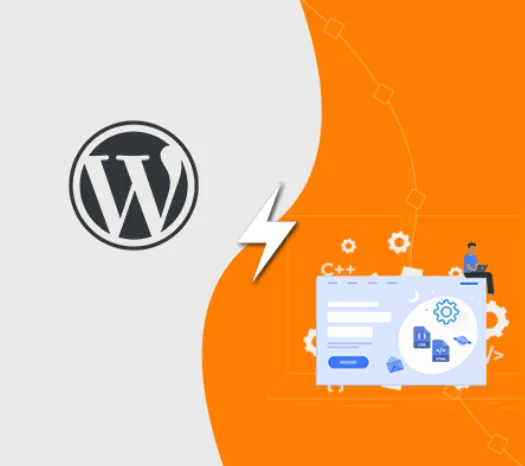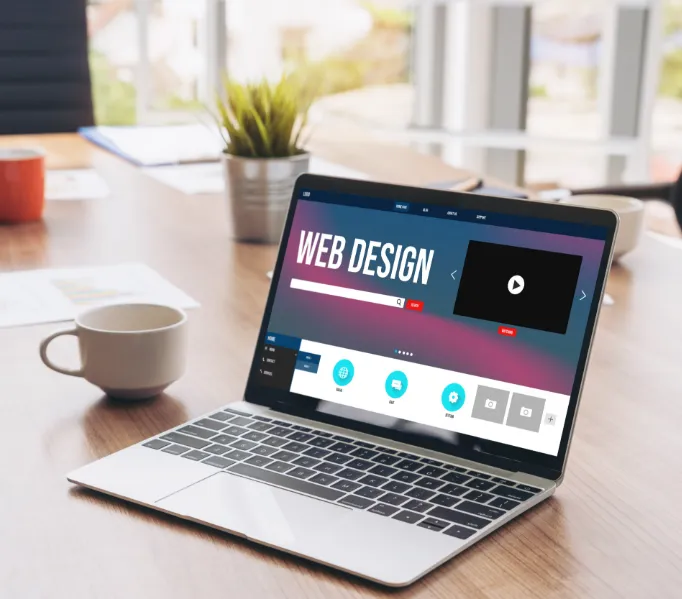WordPress or Custom Website: Which One Should You Choose?

Starting a new website can feel overwhelming, especially when deciding on the right platform. Two of the most common options are WordPress and fully custom-built websites. Both approaches can help you create a strong online presence, but they serve different needs, budgets, and skill levels. If you’re just beginning your digital journey, understanding the differences will help you choose the right path for your goals.
Why Your Choice of Platform Matters
The platform you select determines not only how your website looks but also how it functions, grows, and stays secure over time. Pick the right one, and you’ll have a smooth experience adding content, attracting visitors, and scaling your site. Pick the wrong one, and you may find yourself dealing with technical headaches, unnecessary costs, and frustrating limitations.
Understanding WordPress
WordPress is a popular content management system that powers a huge portion of websites worldwide. It’s designed for users who don’t have deep technical knowledge but still want to build a professional site.
With WordPress, you get access to thousands of themes and plugins that extend functionality, whether you need a blog, online store, or business site. It’s affordable, easy to set up, and widely supported by a large community.
For beginners, this often means you can launch a site quickly without needing a developer. However, achieving a completely unique design or advanced functionality may require coding knowledge or a custom theme.
Quick Facts About WordPress:
- Free software, but hosting, premium themes, or paid plugins may add costs.
- Flexible enough for blogs, small business websites, and e-commerce.
- Customization options exist, but unique designs often require developer input.
Understanding Custom Websites
A custom website, in contrast, is built entirely from the ground up. Developers and designers work with you to create something that’s specific to your brand and goals. This option gives you unlimited control over design, performance, and features.
Custom websites are best for businesses with complex needs, higher budgets, or a desire to stand out with a one-of-a-kind design. They can include specialized systems such as booking engines, tailored e-commerce platforms, or unique interactive tools.
The trade-off is that custom websites take longer to build, are more expensive upfront, and usually require ongoing developer support for updates and maintenance.
Quick Facts About Custom Websites:
- Higher initial cost compared to WordPress.
- Complete freedom in design and features.
- Often requires professional support for updates and long-term care.
Comparing WordPress and Custom Websites
Here’s a quick breakdown of how the two options stack up:
| Aspect | WordPress | Custom Website |
|---|---|---|
| Design | Pre-built themes, limited uniqueness | Fully custom, tailored to your brand |
| Performance | Can slow with too many plugins | Optimized for speed and specific features |
| SEO | Plugins make it beginner-friendly | Advanced SEO possible with coding control |
| Security | Good with updates, but plugins can be risky | Stronger control with custom security measures |
| Cost | Budget-friendly, lower startup cost | Higher upfront investment |
| Setup Time | Days to launch | Weeks or months depending on complexity |
| Maintenance | User-friendly, often self-managed | Usually requires a developer |
When WordPress Makes Sense
If you’re new to websites or working with a tight budget, WordPress is an excellent choice. It’s ideal if you want to launch quickly, maintain your site without constant technical help, and keep costs low. Small businesses, personal brands, bloggers, and freelancers often find WordPress to be the most practical option.
It’s also worth noting that the large WordPress community means there are plenty of tutorials, guides, and forums available whenever you need help.
When a Custom Website is the Better Option
Go for a custom website if you:
- Need unique designs or advanced features that templates can’t provide.
- Expect high traffic volumes or require complex integrations.
- Have the budget to invest in long-term scalability and personalized solutions.
- Want full control over security and performance.
For companies in industries where online presence is directly tied to revenue—such as e-commerce, finance, or large-scale service providers—a custom-built site can be well worth the investment.
Building Your Website: What to Expect
WordPress Setup:
- Choose a domain and hosting provider.
- Install WordPress (many hosts offer one-click installs).
- Select a theme and customize it.
- Add essential plugins like SEO tools, contact forms, or shopping carts.
- Publish your content and launch.
Custom Website Setup:
- Define your goals and required features.
- Hire a professional developer or agency.
- Collaborate on a tailored design that reflects your brand.
- Build and test for usability, security, and performance.
- Launch once the site meets your requirements.
Maintenance and Long-Term Care
WordPress sites are easier for beginners to maintain, as you can update themes, plugins, and the WordPress core with a few clicks. Backups and security tools are also widely available through plugins.
Custom websites require a more hands-on approach, often with a developer handling updates, bug fixes, and security audits. While this adds to ongoing costs, it ensures your site remains reliable and secure over time.
Making the Final Choice
When deciding between WordPress and a custom website, consider these questions:
- What’s your budget?
- How fast do you need to launch?
- Do you need highly specific features?
- How much technical support are you willing to manage?
For many beginners, WordPress strikes the right balance between affordability, ease of use, and flexibility. For businesses with specialized requirements and larger budgets, a custom website offers the control and scalability needed to stay competitive.
Conclusion
Both WordPress and custom-built websites can deliver excellent results, but the right choice depends on your goals, resources, and long-term plans. WordPress is ideal if you want a cost-effective, beginner-friendly solution. A custom website, while more resource-intensive, provides complete creative freedom and advanced capabilities that can grow alongside your business.







